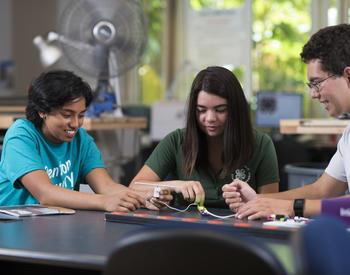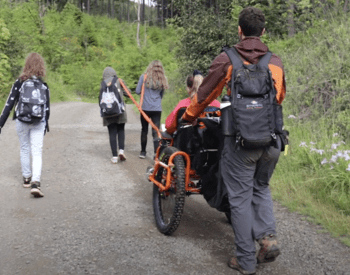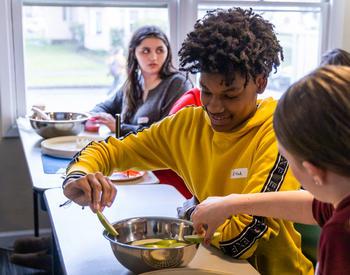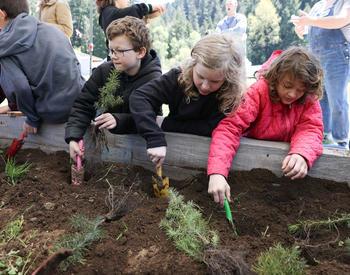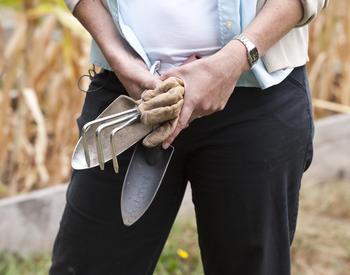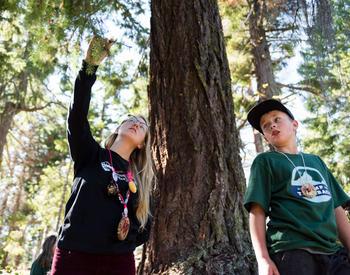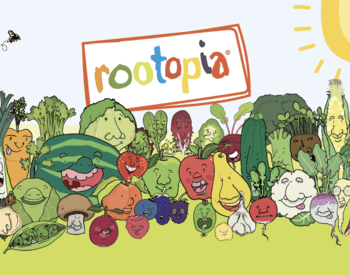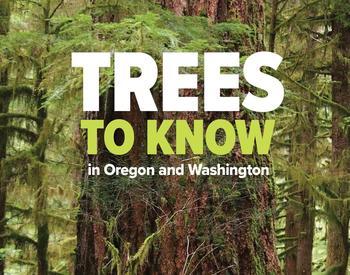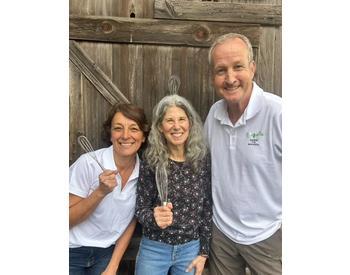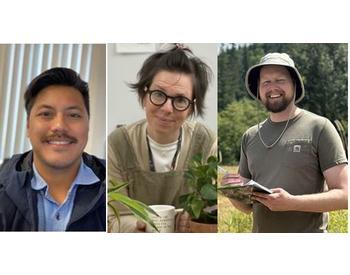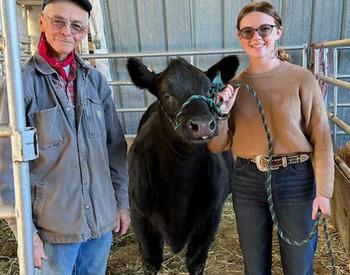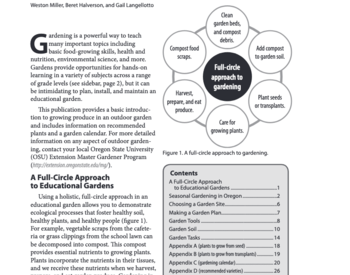PORTLAND, Ore. – Since Oregon State University Extension Service couldn’t welcome 300 Portland Metro area children to in-person day camps this summer, Extension brought the camps to them.
Working with Multnomah Education Service District’s Migrant Education Program, OSU Extension helped facilitate a three-week virtual camp with 4-H Teens as Teachers. Twenty-two teens signed up to teach kids in the first through eighth grades the benefits of local farm-to-table food through gardening, and the basics of being an entrepreneur.
In the past, 4-H faculty and staff helped train and support migrant education summer school classroom teachers to deliver hands-on science projects to students, said Maureen Hosty, OSU Extension 4-H faculty in the Portland Metro area. The COVID-19 pandemic thwarted those classes so the teen teachers produced instructional videos for the younger students. Each week, 400 packets of materials for use with the videos were packed into vans and hand-delivered to every household.
The older kids get involved as teen teachers for a variety of reasons, Hosty said, but many have the desire to go into education.
“I’d like to teach English in Japan,” said 16-year-old Eleidy Chanocua, a junior at Gresham High School. “I feel more confident and comfortable teaching now. I would definitely do it again.”
Teen teacher Juan Lemus is also interested in education. A budding musician who plays guitar, piano and ukulele, he hopes to teach music to children someday. A junior at Reynolds High School in Troutdale, Lemus took only one take to make a 30-minute video of him reading Dr. Seuss’ “My, Oh My – a Butterfly!”, the story of the metamorphosis of an egg into a caterpillar, into a chrysalis, into a butterfly.
“This experience has really helped me know how to talk to kids,” he said. “It depends on the age. You have to speak differently to each kid. I thought it was a fun experience overall. I learned as much as the little kids.”
That’s the idea, said Josue Ramirez, graduation specialist for the Migrant Education Program, which has a more than a 90% success rate for high school graduates.
“It was great to see how many students wanted to be involved and engaged,” Ramirez said. “In a normal year, a lot of them have to travel quite a bit to participate. Some of them take classes in the morning and come to us in the afternoon. It’s incredible what they go through to be part of the program.”
This year, though, younger students remained at home for a virtual camp and the videos and activity materials came to them. Chanocua developed how-to videos to coincide with the supply kits for third- and fourth-graders so they could follow her five step-by-step videos about gardening.
First- through sixth-graders learned about Oregon-grown food and the importance of pollinators through gardening, while seventh- and eighth-grade students took on entrepreneurship as it relates to running a small food-related business.
The teen teachers, who are taught by OSU Extension faculty, spend about five hours a week working on their videos, and participating in leadership training sessions each week which are made available to the students online. The teens were also required to complete a 10-hour online OSU course on how to be part of the 4-H Teens Teachers Corps program.
“We are working with 4-H teen leaders who come from migrant farm families who are essential frontline workers helping to bring food to our tables every day despite the incredible health risks they face,” Hosty said. “This group of dedicated teens have stepped up to provide the education, enrichment and social connections to the migrant farm family younger children who are isolated at home. They have risen up to be leaders in their community. These teens are highly motivated and are working hard to make a difference in their community during this difficult time in our state and our nation.”
